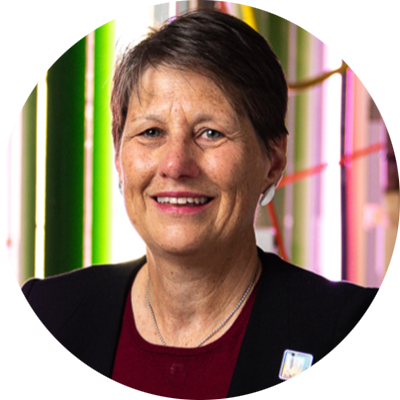Hello my friend in desktop mode.
Hello my friend in desktop mode.
Hello again my friend in desktop mode.
Hello again friend in mobile mode.
Our bodies are in a constant state of change. Our cells divide and replenish. Tissues regenerate.
“Even in your brain, cells are regenerating,” says Professor Briony Forbes. “We’re constantly growing new cells. Skin needs to be replenished and regrow. If you cut it, you need growth to heal the wound.”
And in all these processes, the key ingredients are peptides – small proteins – known as “growth factors”.
As Head of Medical Biochemistry in the College of Medicine and Public Health, Professor Forbes is particularly focused on one in particular – the insulin-like growth factor (IGF).
While growth factors are vital to the growth of a foetus before birth and then the normal functions of the body after, too much can lead to disease. Too little can also cause growth-related diseases. A mutation in the growth factor gene can result in short stature or intellectual disability. IGF can also play a role in atherosclerosis and the laying down of arterial plaques.
“It's a balance. In the context of IGF, too much can cause abnormal overgrowth of bones known as acromegaly, or a greater risk of cancer,” she says.
“High circulating levels of IGF in pre-menopausal women lead to a higher risk of breast cancer, for instance.”
However, growth factors such as IGF are not the catalyst for cancerous cells; once they are present, high growth factor levels will make those cells grow faster, dividing and surviving even in the face of chemotherapy.
Whereas insulin is produced solely in the pancreas, most cells can produce IGF. The question is, why do some people suddenly make too much? Genetics is one reason, and taller people tend to have higher levels of IGF than smaller, shorter people.
Cancer, however, can actually switch on and even increase growth factor production for its own benefit.
“In some cases, the cancer cells themselves, or the cells surrounding the cancers, produce more IGF,” she says. “It's a way in which the cancer is being sneaky to try and promote its survival and have growth benefit.”
And there lies the pointy end of Professor Forbes’ research.
“We're trying to work out the way in which that signal is relayed into the cell to say, ‘Come on, start growing’.
“If we know that, we can then produce an inhibitor that will very nicely block the signals.”
An understanding of the mechanics of IGF and insulin itself not only holds hope for cancer, but for treatments to manage diabetes.
“One area of research informs the other,” says Professor Forbes. “We're doing some interesting work on trying to develop novel insulin for the treatment of diabetes.”
One avenue is to look at different species and how their growth factors and insulins work to find clues about how different molecules are a benefit to us, or can inhibit the growth factor.
“We have a very exciting collaboration with Stanford, Melbourne and Denmark, with the discovery of insulins secreted in the venom of cone snails.”
While superficially, the cone snail insulin might look similar to the human version, its molecular make-up is subtly different.
"By understanding the molecular mechanisms of how the cone snail insulins work, we may be able to make a human variety that has new properties with desirable actions.
“We'd like to develop insulins which are very rapid-acting, so that you might administer them right at the time of eating, rather than having to manage administration a certain time before eating.”
Professor Forbes has witnessed an explosion of knowledge over 30 years of research.
“When I did my PhD, we only just knew that these growth factors must exist. We've come an awfully long way in actually identifying how they work and what they do.
“When I first started, we didn't know there was a link to cancer and we discovered that. What drives you then is maybe we can actually make something that will benefit patients.”
BRAVE MINDS
Discover how Flinders is making a difference to our culture, economy, environment society and world.
Subscribe to Flinders research
Sign up to get updates on upcoming events, news and more.
I consent to the collection, processing and disclosure of the personal information submitted in accordance with the Flinders University Privacy Policy.
![]()
Sturt Rd, Bedford Park
South Australia 5042
South Australia | Northern Territory
Global | Online
CRICOS Provider: 00114A TEQSA Provider ID: PRV12097 TEQSA category: Australian University










